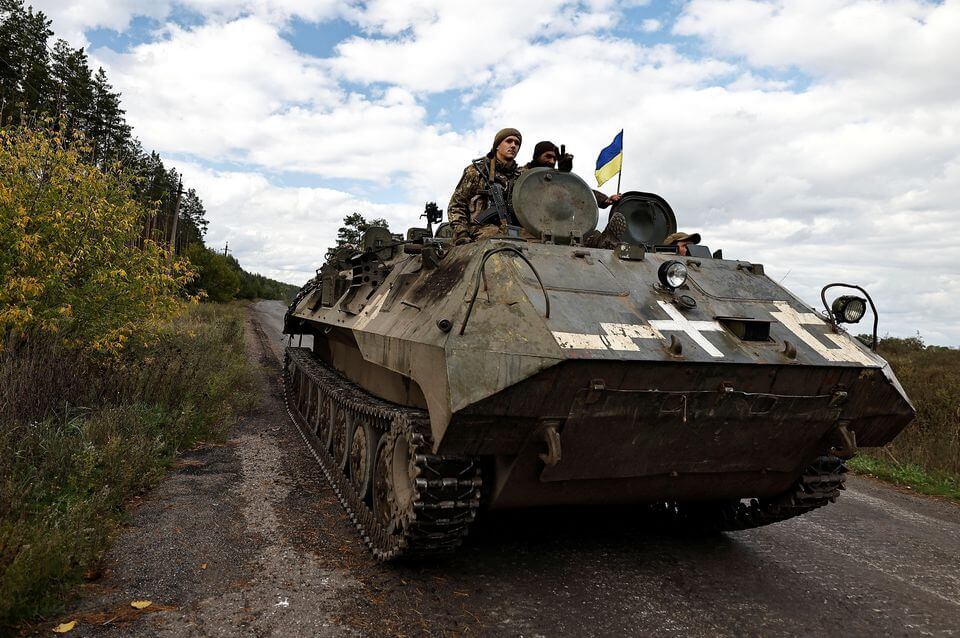Russian state-owned energy company Gazprom’s media on Sunday aired a programme titled ‘In anticipation of nuclear conflict - how weapons of mass destruction have become part of the geopolitical game’ on nuclear explosions and their aftermath, blaming the West for the escalating rhetoric surrounding the Ukraine war.
The programme forebodingly asks the West to accede to Russian President Vladimir Putin’s demands regarding the Ukraine invasion to avoid a nuclear conflict.
"I believe that at this point his position in Russia is weaker than it was before."
— Becky Anderson (@BeckyCNN) October 3, 2022
Former Russian diplomat Boris Bondarev tells me he believes Putin "may try" to use nuclear tactical weapons if he felt cornered, adding that his position in Russia is getting weaker by the day. pic.twitter.com/vwBGR0BcoA
Alongside its state propaganda, at the First Committee of the United Nations General Assembly (UNGA) on Monday, Russian Deputy Director of the Foreign Ministry’s Department for Non-proliferation and Arms Control Konstantin Vorontsov warned the West that “statements about the need to defeat us on the battlefield and strategically, [and] pumping the criminal Kyiv regime with weapons” will possibly “escalate all the way up to a direct military clash of nuclear powers with all the ensuing disastrous consequences.”
“We consider this policy irresponsible and destructive,” Vorontsov emphasised.
On the same day, Russian Ambassador to Australia Alexey Pavlovsky also noted that Russia’s “military doctrine sets the conditions and situations when nuclear weapons can be used” in response to Australia sanctioning 28 more Russian officials following the “sham” referenda in four Russian-occupied regions in Ukraine—Donetsk, Luhansk, Kherson, and Zaporizhzhia.
From my military sources in Kyiv, the annexation referenda are responsible for this increased risk
— Samuel Ramani (@SamRamani2) September 29, 2022
Vladimir Putin can not be seen to lose territory in occupied areas, and Russia's efforts to deter Ukraine's liberation of these territories are not working
After the Ukrainian forces recaptured Lyman in eastern Ukraine over the weekend, Chechen leader Ramzan Kadyrov also asserted that “more drastic measures should be taken, up to the declaration of martial law in the border areas and the use of low-yield nuclear weapons.” He further blamed the Russian General Staff for failing to thwart the Ukrainian “Satanists and fascists.”
In this respect, Kremlin Spokesman Dmitry Peskov said, “Heads of regions have the authority to express their point of view and make assessments.” However, he did warn that “even in difficult moments, emotions should not cloud any assessments.”
Last month, Russian State Duma Committee Chair on International Affairs and leader of the Liberal Democratic Party of Russia (LDPR) Leonid Slutsky called Ukraine’s draft of legally-binding international security guarantees to defend itself against Russia an “escalation” and threatened the Western countries with nuclear warfare.
Similarly, deputy chairman of the Russian Security Council and former president Dmitry Medvedev warned of nuclear warfare by saying that “sooner or later [Russia’s] military campaign will move to another level” if Ukraine continued to receive “the most dangerous types of weapons.”
4) Legitimizing the change of national borders by force is the way of dictators, not the free world. 5) Ukrainian people and territory are not baubles to be traded or sold by third parties, let alone to a dictatorship committed to their ethnic cleansing and slaughter.
— Garry Kasparov (@Kasparov63) October 3, 2022
Such statements from Russian officials have gathered momentum after Putin declared last month, “When the territorial integrity of our country is threatened, we will certainly use all the means at our disposal to protect Russia and our people. This is not a bluff.”
Following the mobilisation of 300,000 reservists to join the Ukraine war, Putin accused Western countries of pursuing “nuclear blackmail,” Putin warned, “Those who try to blackmail us with nuclear weapons should know that the prevailing winds can turn in their direction.” He added that Russia has “various [weapons] of destruction, more advanced than North Atlantic Treaty Organization (NATO) countries.”
Our warriors from @ng_ukraine reported that the village of Zolota Balka, Kherson region, has been liberated.
— Defense of Ukraine (@DefenceU) October 3, 2022
russians control less territories in Ukraine each day. pic.twitter.com/zPTOsafHmv
In fact, after signing the accusation treaties of Donetsk, Luhansk, Kherson, and Zaporizhzhia on Friday, Putin pointed out that the United States (US) had “created a precedent” in being the only country to have used nuclear weapons (to destroy Hiroshima and Nagasaki in Japan during World War II).
The rising threat of nuclear warfare comes against the backdrop of Ukrainian troops making significant inroads in southern Kherson, with even the Russian Defence Ministry acknowledging, “Superior enemy tank units succeeded in wedging into the depth of our defence towards Zolotaya Balka and Aleksandrovka.” Nevertheless, Russian Defense Ministry spokesman Igor Konashenkov said that his forces have launched “massive fire attacks” and had killed 130 Ukrainian troops as well as destroyed 23 military equipment in the region.

